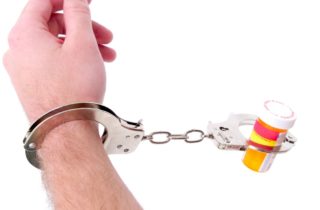Vicodin, or hydrocodone, is a prescription narcotic, analgesic pain reliever, and part of the opioid class. Vicodin binds to the opiate receptors in the brain which are responsible for pain sensations and feelings of euphoria.
Using Medical Assistance to Safely Withdrawal from Vicodin


Vicodin Withdrawal
Using Medical Assistance to Safely Withdrawal from Vicodin
In most cases, Vicodin is prescribed for short-term use; after surgery, or dental procedures. Unfortunately, because of the way the drug interacts with opioid receptors, patients can quickly build up a tolerance. They may begin partaking in off-label use and taking more Vicodin than recommended or prescribed. Tolerance, dependence, and addiction are likely with long-term Vicodin use. When people exhaust their medical supplies of Vicodin, they may turn to heroin to avoid painful withdrawal symptoms and feed their addiction.
Vicodin will cause depressed breathing and, taken with alcohol, is especially dangerous. The risk of overdose is high. Signs of a Vicodin overdose include slurred speech, unresponsiveness, and blue lips and fingertips. Immediately call 9-1-1 if you suspect someone is overdosing from Vicodin. Unintentional overdoses of Vicodin account for 18% of all overdose deaths. Even more chilling, Vicodin has been linked to fatalities unrelated to overdose. Because the drugs caused depressed breathing, people with cardiovascular issues or untreated sleep apnea can die from arrhythmias, strokes, and heart attacks when taking Vicodin. Prolonged Vicodin use will also damage the liver.
Because of the dangers from Vicodin and the way in which drug addiction ruins someone’s life, getting help is critical for people suffering from an opioid addiction. While withdrawal symptoms can be scary and painful, there is help to lessen and alleviate the distress and discomfort of the withdrawal phase. Medical detox centers are staffed with trained and knowledgeable doctors and therapists who can prescribe medication, so withdrawals aren’t as intense or long-lasting.
What is the timeline for Vicodin withdrawal?
Symptoms will begin within 12 hours of last use, peak within 72 hours, and last about seven to ten days.
Usually, the physical withdrawal symptoms will fade within the first two weeks after cessation. However, psychological symptoms can linger for many months. People who don’t get help can relapse if they suffer from lingering withdrawal symptoms. The withdrawal timeline and its intensity will vary by individual and is mostly unpredictable.
What are the physical symptoms and complications of Vicodin withdrawal?
Physical withdrawal symptoms include the following and will be experienced within the first two weeks after cessation:
- A Runny nose
- Tearfulness
- Muscle aches and pains, flu-like symptoms
- Fever, chills, and sweating
- Headaches and fatigue
- Changes in heart rhythm and blood pressure
Blood pressure and heart rate changes are potentially dangerous for people with any underlying cardiovascular issues. In some cases, these withdrawal symptoms can trigger a heart attack or stroke in at-risk persons.
What are the emotional and psychological symptoms and complications of Vicodin withdrawal?
- Anxiety
- Agitation
- Depression
- Mood swings
Depression and anxiety can linger for months after cessation. Without help from medical professionals, people who are trying to recover from Vicodin addiction can develop severe and debilitating mental health problems. They may go on to self-medicate with drugs and alcohol or start retaking Vicodin to alleviate their pain. If someone attends counseling after cessation, trained therapists can spot these problems before they get out of control.
What is the difference between going cold turkey with Vicodin versus getting help from a medical detox center?
A cold-turkey detox is painful and potentially dangerous. Without assistance, withdrawal symptoms are protracted and more intense with a cold-turkey detox. An abrupt cessation will shock the body, and withdrawal symptoms will go into overdrive. For those with underlying physical and mental health problems, cold turkey detox is a risky venture and not recommended by the medical community.
With a medically assisted detox, people are in a safe and serene environment. They are kept away from harmful outside influences. Doctors can monitor them for any medical complications and can prescribe small doses of opioids to taper down from or replace with Buprenorphine/Naltrexone. Replacement therapy can lessen withdrawal symptoms intensity and also shorten the withdrawal timeline.
What is safe during Vicodin withdrawal?
During detox, it is safe for patients to take replacement medications and antidepressants for anxiety and depression. Doctors can also give patients medicine to alleviate any stomach upset. Also, trained counselors are available to help patients with the emotional aspects of drug addiction and withdrawal. Therapy is incredibly efficacious for people going through detox and rehab. Also, for people with blood pressure and heart rhythm complications, doctors can give them beta blockers to minimize the risk of stroke or heart attack.
What isn’t safe for Vicodin withdrawal?
It’s not safe to self-medicate withdrawal symptoms, nor is it recommended for someone to go cold turkey at home without help. Also, patients shouldn’t consume caffeinated beverages while going through detox because it can make blood pressure and anxiety worse.
What happens during the Vicodin withdrawal process?
First, patients are accessed for physical and mental health conditions and also polydrug abuse. These factors will determine what kind of tapering off or replacement mediation schedule a doctor can put them on. During acute withdrawal phases, patients are given medication to alleviate some of their symptoms. For the first week or so, patients are kept in medical detox where doctors can monitor them for signs of serious health complications.
Once withdrawals begin to subside, patients can begin a stay at an inpatient rehab, where they will work closely with counselors on how to form life-skills that will help them live a drug-free life outside of the facility. Inpatient rehab gives people the tools necessary to prevent a relapse or deal with one quickly if it occurs, so they don’t spiral down the rabbit hole of drug addiction again.
How does Vicodin withdrawal differ from other opioid drugs?
Vicodin withdrawals mirror the withdrawal symptoms of other opioid drugs. People recovering from an opiate addiction tend to experience longer-lasting cravings and depression than other drug addictions. But Buprenorphine/Naltrexone and other replacement opioid medications have been shown to be useful for mitigating these effects.
How does Vicodin withdrawal affect individuals differently?
Addiction and withdrawal vary by individual, and many factors can affect the withdrawal timeline and its intensity. A person’s overall health and metabolic rate, and if they are polydrug users or self-medicating a comorbid condition all play a role in the withdrawal process. Fortunately, medical detox and rehab centers can help anyone who wants to get clean from a Vicodin addiction.




